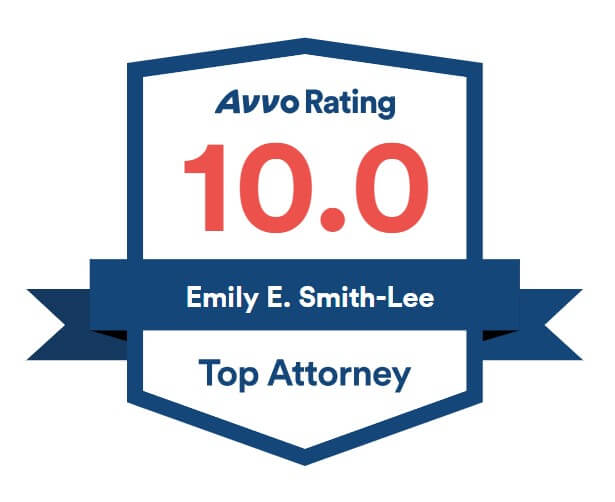Shareholder and Partnership Disputes in Massachusetts
Disputes in a Closely Held BusinessIn the world of business, partnerships and shareholder agreements form the backbone of many enterprises. While these agreements are crucial for defining roles, responsibilities, and profit-sharing, disputes can inevitably arise. In this comprehensive guide, we explore two significant facets of partnership and shareholder conflicts: breaches of fiduciary duty and common shareholder disagreements. Understanding these dynamics is vital for maintaining strong business relationships and resolving disputes effectively.
Understanding Fiduciary Duty in Business RelationshipsFiduciary duty is a legal obligation that mandates individuals to act in the best interests of others, particularly in business relationships. Partnerships and corporations often entail fiduciary duties among stakeholders, such as partners and directors. This duty requires transparency, loyalty, and the avoidance of conflicts of interest.
Common Breaches of Fiduciary DutyCommon breaches of fiduciary duty may include self-dealing, misappropriation of company assets, diverting business opportunities for personal gain, or pushing a partner or co-owner out of the business. The implications of such breaches can be severe, ranging from damaged trust and strained partnerships to legal actions seeking restitution and damages.
To prevent breaches of fiduciary duty and associated disputes, businesses should establish clear expectations, roles, and responsibilities among partners and shareholders. Robust governance structures, ethical guidelines, and conflict resolution mechanisms can also contribute to a harmonious and legally compliant business environment. Shareholder DisagreementsShareholder disagreements often revolve around issues like profit distribution, decision-making authority, or disputes over the company's direction. In the most extreme cases, they involve issues of how a partner or co-owner exits the business, either voluntarily or otherwise. These conflicts can disrupt business operations, hinder growth, and damage the company's reputation.
Resolving shareholder disputes can be achieved through various means, including negotiation, mediation, arbitration, or litigation. Effective communication, compromise, and adherence to applicable laws are essential when pursuing resolution. Shareholder agreements are valuable tools for preventing and addressing conflicts among shareholders. These agreements outline the rights, responsibilities, and dispute resolution processes, providing a clear framework for managing disputes and preserving the company's stability. In navigating partnership and shareholder disputes, proactive measures, transparent communication, and adherence to legal and ethical principles are key. At slnlaw, we understand the complexities of these dynamics and can offer expert guidance to help you manage and resolve disputes effectively, safeguarding the interests of all parties involved. |
We're Here to Help.OR
|
Questions About a Partnership or Shareholder Dispute?
Our Solutions Roadmap is a quick and easy way to share the details of what you are facing and receive preliminary feedback from a member of our team. Use the button below to get started- it is 100% confidential and 100% free.
Meet Our Business Attorneys

Emily Smith-Lee is the owner and founder of slnlaw. She is a 1996 graduate of Boston College Law School. She was previously a partner at the Boston office of a large international firm, where she worked for thirteen years with a focus on business litigation. In 2009, she started the firm that since became slnlaw, and has grown it from a solo practice to a five-attorney firm with multiple practice areas. She has been recognized as Massachusetts Superlawyer each year since 2013, and in 2018 earned recognition as one of Massachusetts Lawyers Weekly's Lawyers of the Year. She has written a book on employment law: Rules of the Road, What You Need to Know About Employment Laws in Massachusetts, and helped hundreds of small business owners with contracts, business transactions, employment law advice, business incorporation, and risk management. She has also litigated business disputes in state and federal courts.

Rebecca Rogers: Rebecca is a 2006 graduate of Boston College Law School, and has worked with slnlaw since 2013. She previously worked as an intellectual property litigation attorney for Fish & Richardson in Boston, Massachusetts, and clerked for the Massachusetts Supreme Judicial Court. Rebecca has helped clients with business contracts, employment contracts, and employment law advice.

Jenna Ordway: Jenna is a 2013 graduate of Quinnipiac Law School, and also earned an LLM in Taxation from Boston University in 2015. She has been affiliated with slnlaw since 2011, first as a law clerk and then as an attorney. Jenna has been recognized since 2019 as a "Rising Star" by Massachusetts Superlawyers. Jenna has helped many small business owners with simple and complex business incorporation, contract review, advice and analysis regarding business disputes, employment law advice, and advice about business succession considerations as part of estate planning.

Elijah Bresley: Eli is a 2014 graduate of Seton Hall Law school, and has worked with slnlaw since 2020. He previously worked for a boutique employment law firm outside of Boston, and then for the Labor and Employment department of a large Boston firm. He also spent a year clerking for the judges of the Superior Court in Hartford, Connecticut. Eli has helped our small business clients with employment law advice and defense of employment-related lawsuits in MCAD and state and federal courts.

Sharleen Tinnin: Sharleen is a 2010 graduate of Northeastern University School of Law, and has been with slnlaw since 2023. Prior to joining slnlaw, she worked with King, Tilden, McEttrick & Brink, P.C. on complex civil litigation matters. She previously worked for the United States Department of Justice, and received an "Excellence in Justice" award in 2017. Sharleen has helped clients litigate business disputes in state and federal courts, and advised business owners about succession considerations as part of their estate planning.
How We Can Help
Our experienced team provides expert guidance to navigate partnership and shareholder disputes effectively, preserving business relationships and ensuring compliance with legal and ethical standards. You can use the button below to schedule a call back from a member of our team, or give us a call at 781-784-2322.
|
Emily Smith-Lee Rated by Super Lawyers loading ... |
Jenna Ordway
Rated by Super Lawyers loading ... |


